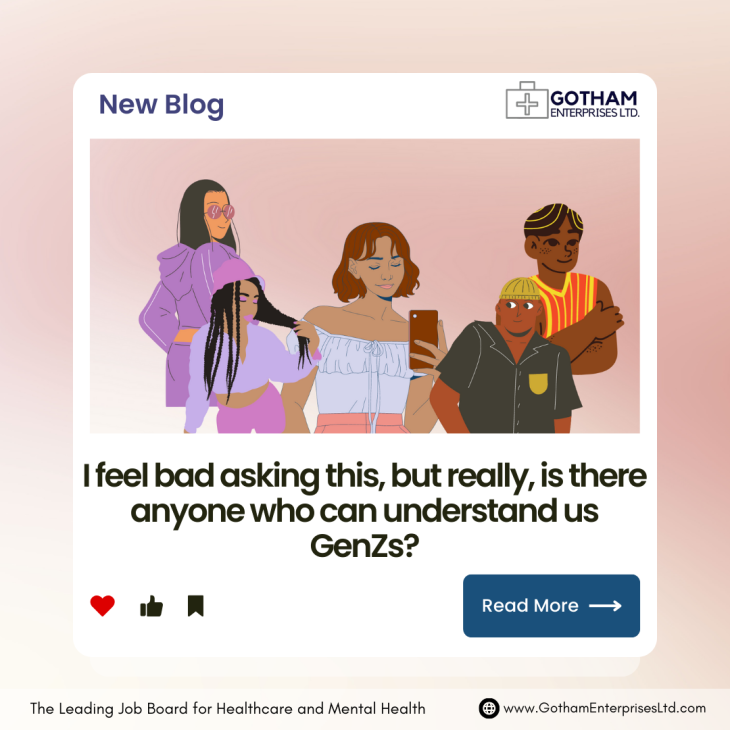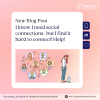Recent Posts
- I broke up with my partner, but now I am having doubts. Did I do it out of the right reasons or was I just being fearful?
- My Quick Temper Pushes People Away. What Do I Do To Manage My Anger?
- How does noise affect my mental health?
- I want to be a better problem solver. What is a step by step approach?
- Escapism. When is it healthy? When is it damaging?
Most Popular
I feel bad asking this, but really, is there anyone who can understand us GenZs?

It feels like playing a game of tug of war. These fiery debates about Generation Z, who they are, what their strengths are and misconceptions about them are all over social media, and if we just observe from the outside in, we may be pulled towards believing all the bad rap this generation is receiving.
Research and pulse surveys of Gen Zers from Brazil, Argentina, the US and Britain show that there are underlying similarities in the overall outlook of these people born between the mid-1990s and 2010. As a generation, they are pragmatic, inclusive, dreamers, purposeful, digital, truthseekers and not defined by labels.
Although much research has been done on the characteristics of this Generation, many false notions still crop up in workplaces and community circles.
How did this generation grow up?
- The need for more security
To get a clearer picture of Gen Zers, one needs to understand that their formative years were marked with insecurity and instability in the economy, health care and even society at large. The global-scale changes that were accelerated by the pandemic resulted in a generation that saw life as something that can be altered in days and reality can be disrupted easily. They are able to process a lot of information and make decisions on the go.
- The need for data for decision-making
Since they grew up with technology and the Internet at hand, they are more comfortable with technological processes, mastering new systems, and using data to make realistic decisions. While other generations may suffer from information overload, Gen Zers are capable of processing high amounts of stimuli and multi-task.
- The need for authenticity
Oftentimes, they are tagged difficult to deal with in social interactions, Gen Zers actually strive to be true to themselves and they hold others to the same high standard. They grew up understanding the effect of actions on the planet and the future of society, so there is a drive towards more sustainable and environmentally-friendly ways.
Why do people get the wrong idea of Gen Zers?
- Gen Zers are lazy. This might be one source of misunderstanding between the older generations and Gen Z. What others see as not wanting to work, entitlement, narcissism, being “soft” or being a “snowflake” may mean Gen Zers desire to access services rather than own them as shown in the rise of streaming subscriptions, ridesharing and rentals. It may mean that these young people are more fluid in their view of work, preferring collaboration and teamwork rather than the traditional leadership styles and management.
- Gen Zers have a very short attention span. Notifications, pings, DMs, viral videos, etc! It can be very hard to control the number of possible distractions Gen Zers get in an hour alone. But because they are multitaskers, they are able to revolve around various tasks and switch roles if need be. They thrive in quick thinking and problem solving.
- Gen Zers are too soft. Giving and receiving feedback and communication styles are just some of the sensitive areas of contention among generations. Gen Zers have the image of being too easily offended and less quick to recover from life’s hard knocks. However, studies have shown that Gen Zers value feedback and communication, they prefer feedback and rewards for good performance to be instant. They want communication to be a dialogue rather than one-way and direct.
How can we better understand Gen Zers?
Understanding them to foster connection and communication is essential to the growth and success of this generation forecasted to be the largest generation in a couple of years. Connecting with them may be possible through:
- Training. In the workplace setting, Gen Zers tend to be less productive when working with managers who don’t practice diversity and openness. In fact, research has shown that Gen Zers may lose many productive days in the workplace due to mental health concerns such as anxiety and depression. Giving skills to managers will enable them to create a more welcoming and collaboration-focused environment.
- Reward quickly and practice two-way communication. A system that offers Gen Zers a quick reward system allows them to feel that their work is appreciated. As they feel that their actions are making a difference in the team, they are highly likely to invest more of their passion, energy and time in their work.
As the number of Gen Zers rises to 30% of the total workforce in the next 2 years, Gen Zers are optimistic that mutual understanding with other generations will set them up for a changed and a more hopeful future.







Comments